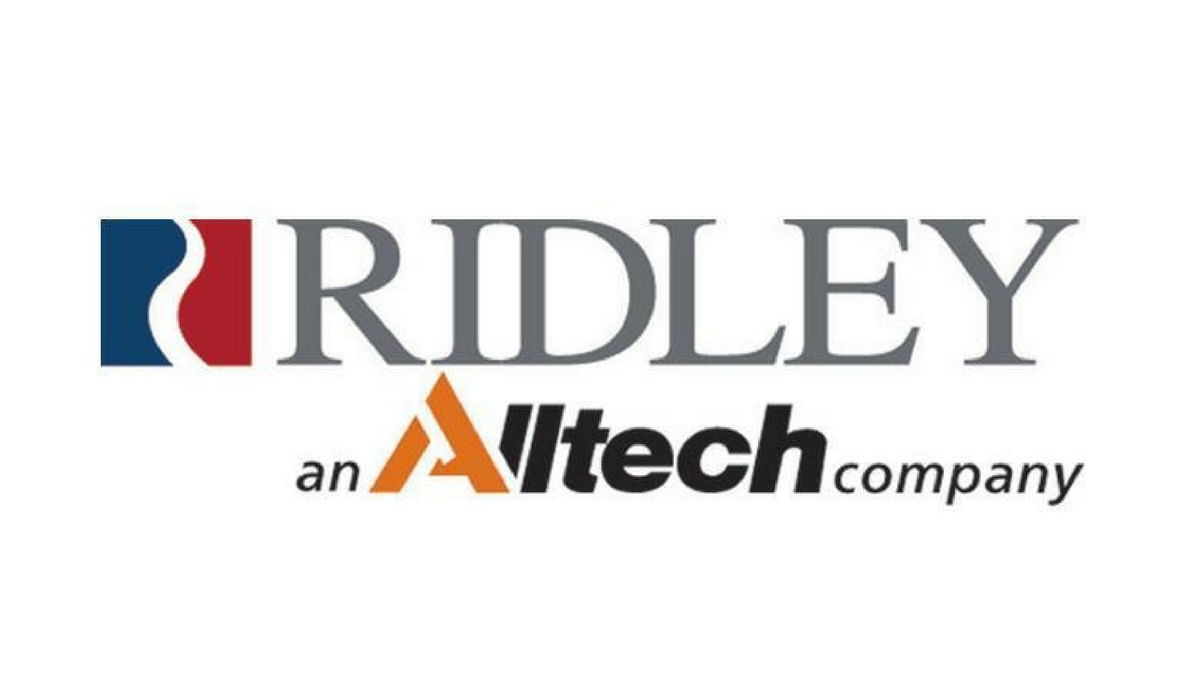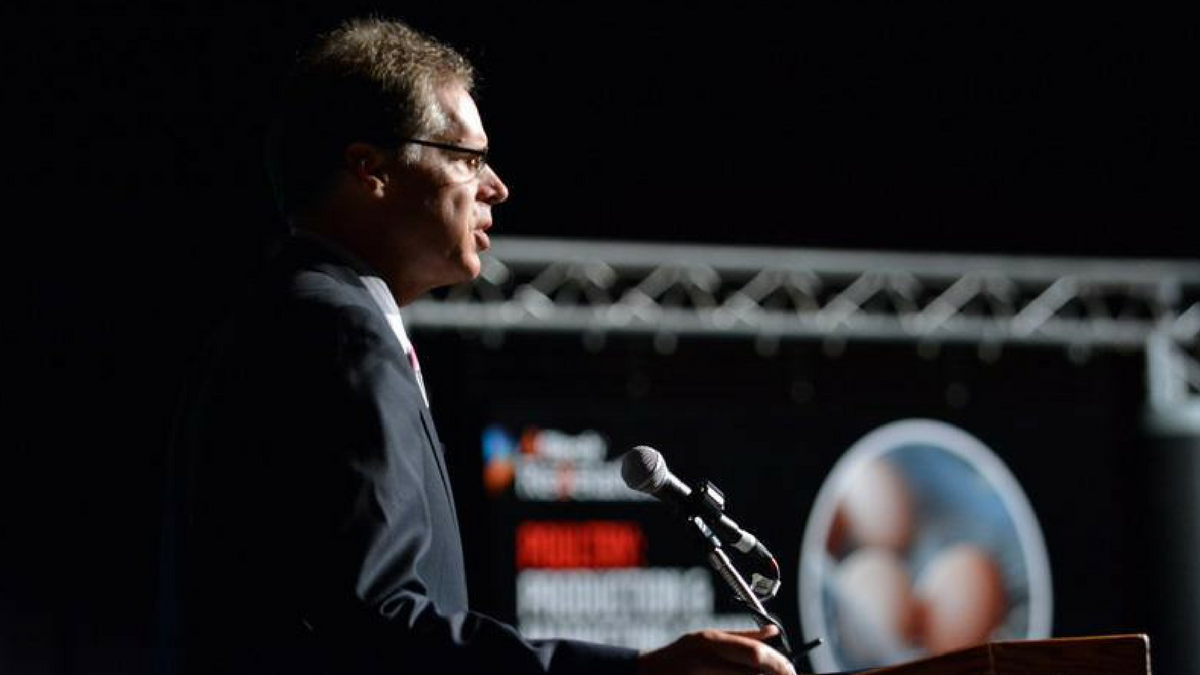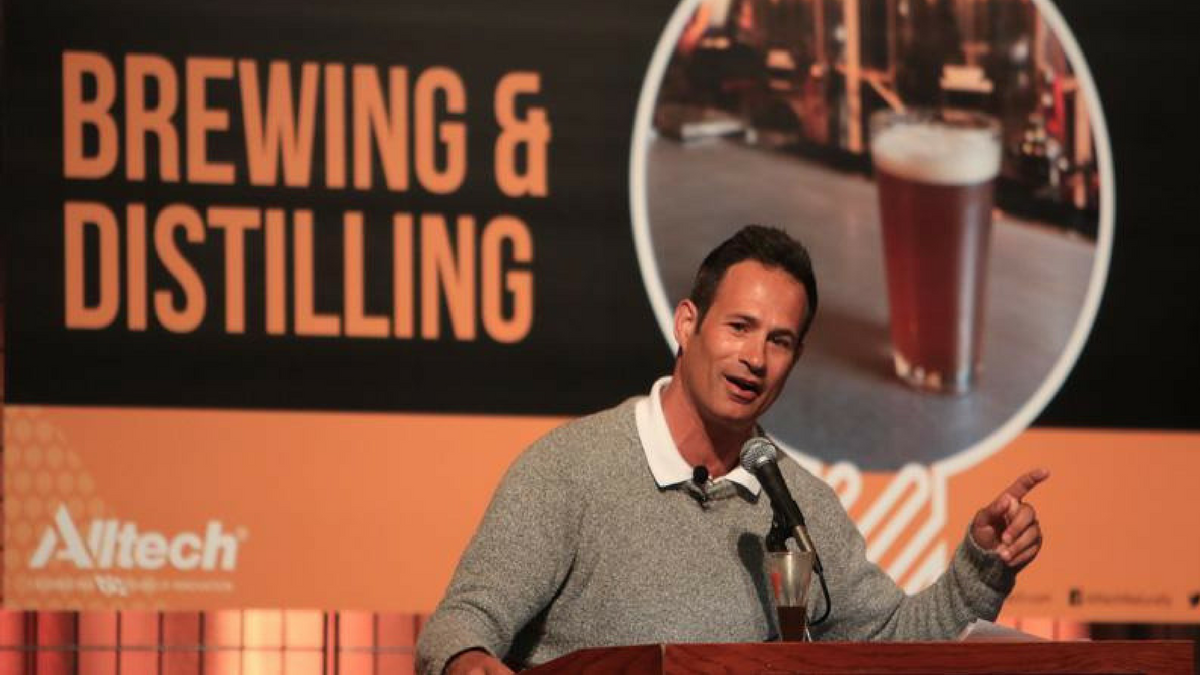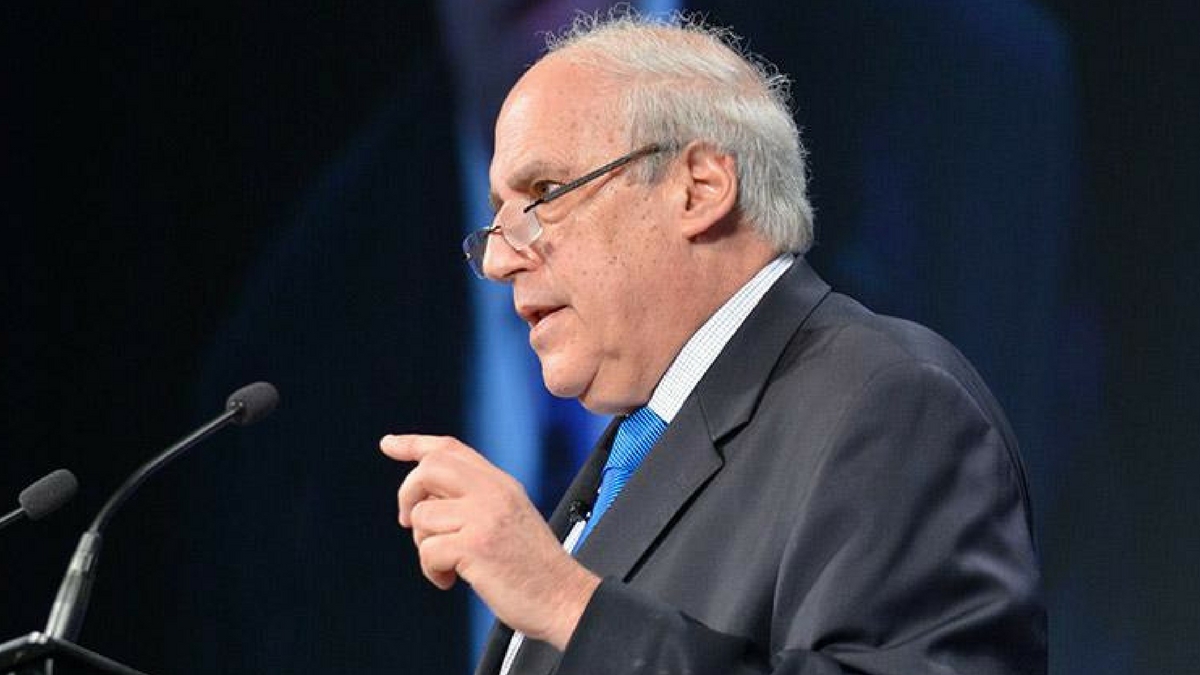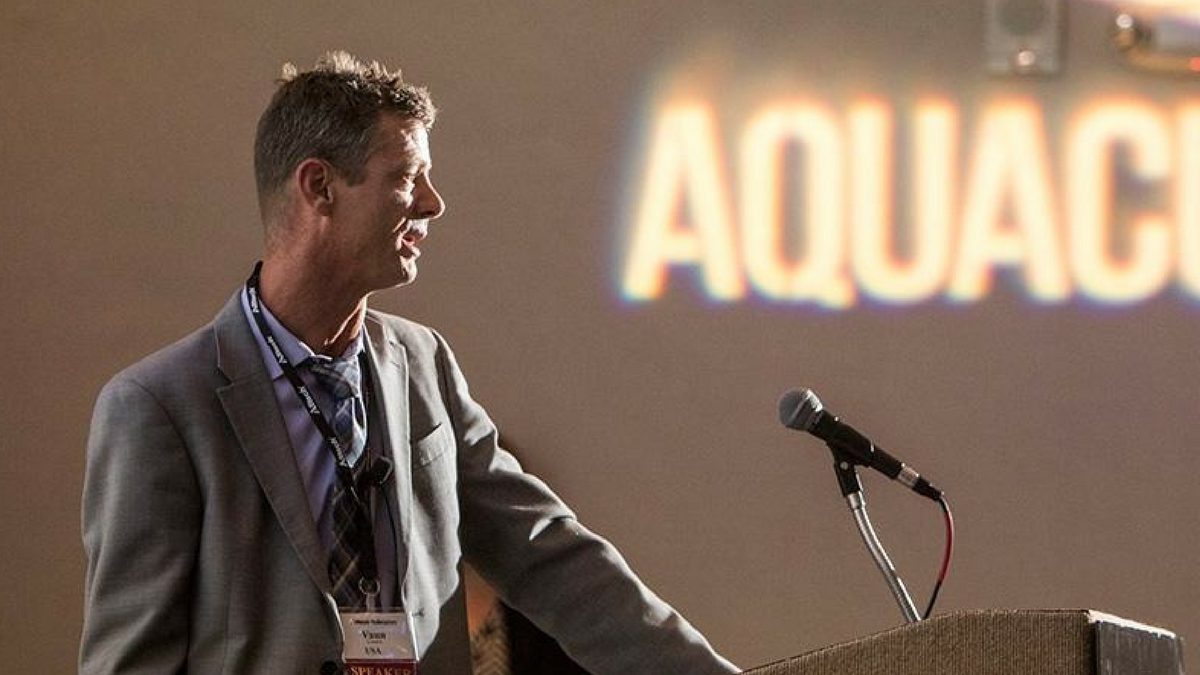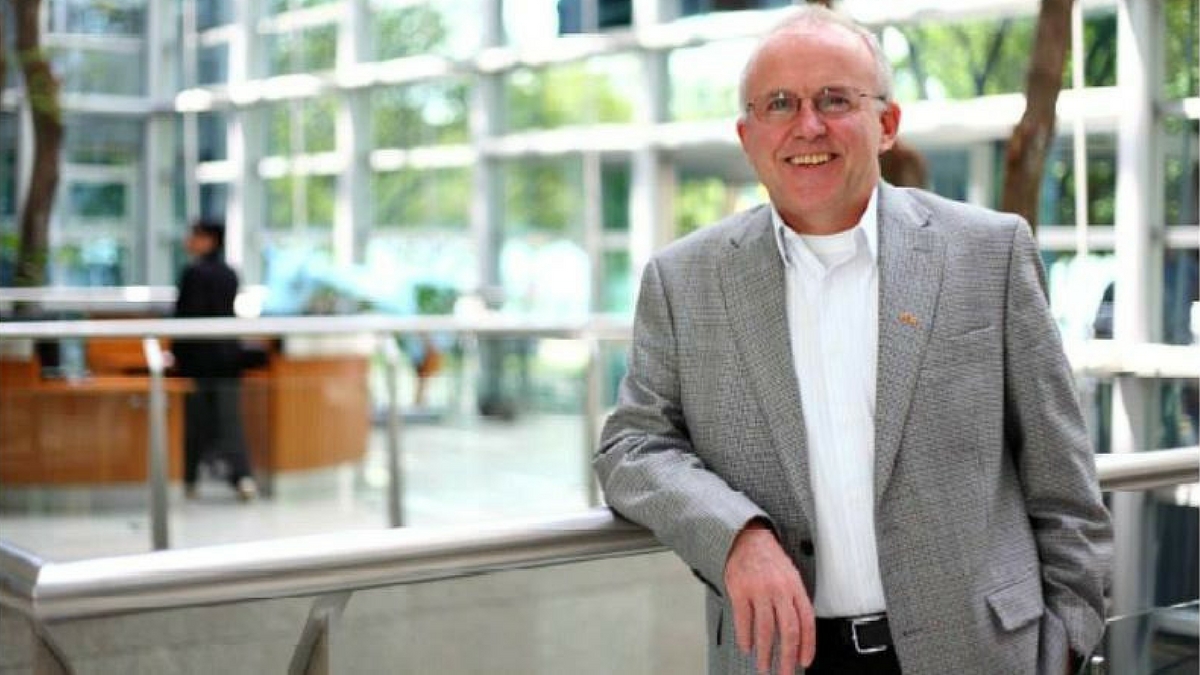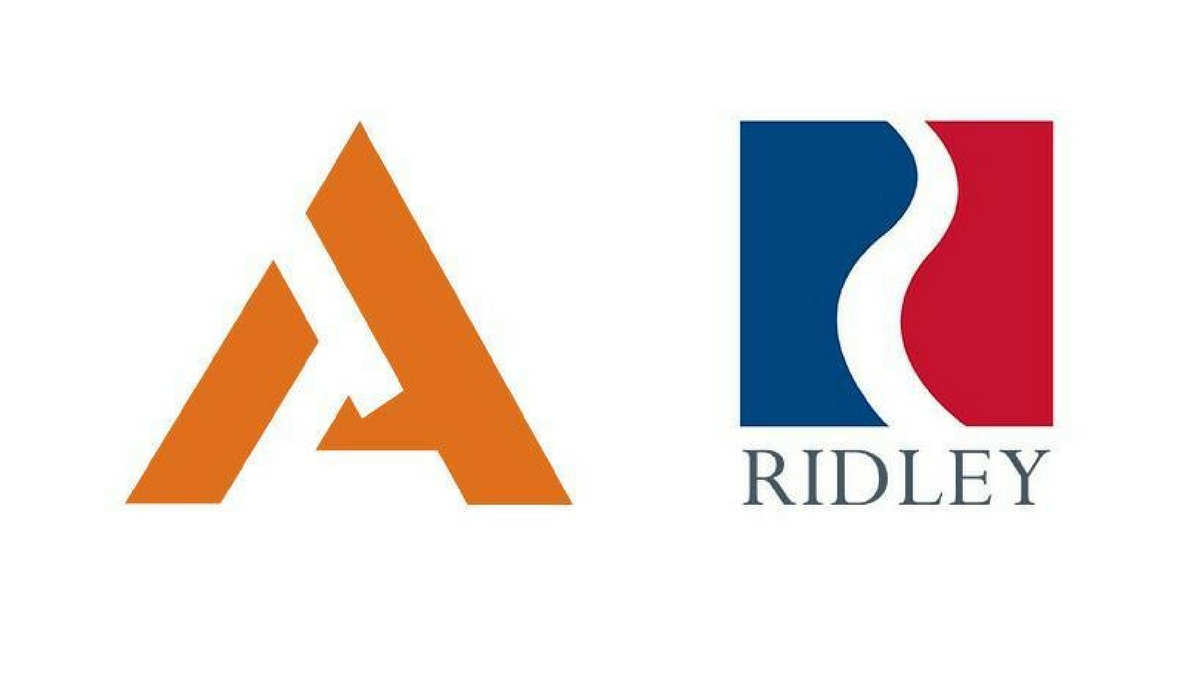Food Safety: Red Tractor’s Never-ending Pursuit
Food Safety: Red Tractor’s Never-ending Pursuit
Where does your food really come from? From farm to processing plant, from supermarket to plate, it’s important to know that your food was handled in a safe and ethical manner at every step of the journey. This episode takes a look at Red Tractor, one of the most trusted food assurance programs. Alltech’s David Butler recently sat down with food industry leader Philip Wilkinson to better understand how Red Tractor provides peace of mind to the consumer. You can listen to the podcast in full or view the transcript below.
I'm David Butler and my guest today is Philip Wilkinson, Executive Director of Two Sisters Food Group. Actually that's just one of many positions that Philip holds. He took some time to talk to us about food safety, traceability and Red Tractor, the United Kingdom's leading farm and quality food assurance program. Their motto is, "we trace it so you can trust it".
So, I’m Philip Wilkinson, Executive Director of Two Sisters Food Group which is the largest poultry producer for broiler meat in Europe. I’m Vice President of AVEC, which is the European Poultry Association, a board member of the British Poultry Council, and on the Board of Assured Foods Standards in the UK.
That is a lot of hats to wear.
Yeah it is, but they are all interconnected so it works very well.
And a lot of what you do is related to messaging to the end consumer is that correct to say?
Yeah. The Assured Foods Standards brand, or mark, you would know as being a Red Tractor which is underpinned by the Union Jack, the Union flag of the UK. And, that is a mark that has been on the go now since the year 2000 when it was launched. In dollar terms the sales value in 2015 will be in the region of $22-23 billion US. So, it has come from zero to hero in that 15 years and would be the mark that the vast majority of citizens and consumers in the UK would recognize in terms of one of quality, traceability, assurance, and would give them trust.
They would know that that kind of symbolizes everything that’s important to them and their food.
We like to think so. But, it’s a little bit like painting a very large bridge. It’s never ending. You get to the end and you got to start at the beginning again. So it’s an evolutionary process. We didn’t put something in place back in the year 2000 and it stayed exactly the same in 2015. It moves with the times. We tweak it here, we tweak it there in order to keep up with what is considered to be important in the minds of consumers. At the time that this was launched, there was no carbon footprint message going around whereas we now know that is a major part of the sustainability debate. So, we are now looking at being true to that objective and G20 leaders have signed up to that agreement to hit benchmarks by 2020 and there are milestones in that process, so we have bought into that as part of our message and that will fall into our activities going forward across all meat proteins and crops, as well, because the Red Tractor does embrace all meat proteins together with combinable crops, so you know it’s a pretty big operation.
That does seem like a huge operation and it seems like it would be very difficult to create guidelines or best practices across so many different, very diverse industries. How do you do that?
Okay, and that’s a good question. Each sector is a stand-alone. So, each sector has its sector board, it has its own technical advisory committee, and what I need to share with you is that this is not an in-house initiative. This is something that is shared across the whole of the supply chain so that everyone buys into it. So, you’ve got the farming union representing the farmers. You’ve got the likes of the British Poultry Council representing the poultry processors, you’ve then got the British Retail Consortium representing the retailers. Food service representatives and also academics and independents.
And, what we do, is we have a set of standards that are compiled by those people. So they are independent. The technical advisory committees are chaired by independent people. People who have got a wealth of experience in the field but are not directly involved in the supply chain. So they may be university professors who talk about this sort of stuff and I think about ours, is a guy who was a lecturer, very very well respected, at Reading University. He has been the chairman of the technical advisory committee. So that when product, and it always does happen that there will be a food scare, there is always something that is going to happen in the food industry, no matter how hard you try, you can put an independent person to front that, because it gives far more credibility than somebody like me who is an industry person who the consumer would say, “Well, he would say that anyway.” So, it gives it and this technical advisory committee, is meeting on a bi-month basis to review the standards, review the adherence to standards, to then dole out penalties to those who don’t adhere to the standards, so that the standards have integrity. Without the integrity, the consumer wouldn’t trust them and there would be chaos.
Right, so you have input and knowledge and expertise that is coming from the people in the industry that worked in the industry for years and years and they’re contributing that, but you also have independent people on the boards.
Just to show how fair we actually are, we even have on the board of Assured Food Standards, a representative from Compassionate World Farming. It doesn’t get more open than that. These are people who would sometimes march on the Houses of Parliament or march into KFC or into McDonald’s or into Two Sisters Food Group and cry foul. So, this is how open we are and how transparent we are in embracing the thoughts and opinions of everyone before we arrive at a decision.
Wow, that’s pretty impressive. It seems a lot more genuine than, you know, a company that might create their own little kind of premium certified logo that is not backed up by anything in particular.
I think that most companies who do, do that and some decide they’re going to have their own offering underpinned by Red Tractor, but then, let’s say move slightly outside that to create a point of difference for them, they would always use the Red Tractor Assurance to underpin, but then they would also rather than it stay in house, they would also use independent bodies who audit their schemes as well. And, might even help in the compilation of those schemes.
Is there any talk of Red Tractor expanding beyond the United Kingdom?
The Red Tractor Standards are already accepted outside of the United Kingdom because companies such as ours, or some of the retailers, or food service organizations who stand by the Red Tractor mark to the consumer as their offering have product that comes in from other countries. So, even though we produce in the UK, 19 million chickens a week, we actually consume 27 million whole bird equivalents, so those birds come in from Brazil or Thailand or elsewhere in Europe and in order for it to be a level playing field, and in order for the on pack claims to be made, equivalents have to be agreed in those countries. So, if they’re not eligible to carry the Red Tractor and the Union Jack, because obviously the Union Jack is produced in the UK; however, they are audited to those standards in those relevant countries by auditors who have been checked out by the audit bodies and the competent authorities back in the UK. So, the brand doesn’t travel, but the equivalents of it, do and that is the only way we would take product in from those countries outside of the UK.
So that’s having a positive effect on the global food supply really.
Yep, and as I showed in the presentation both yesterday at the food REBELation and at the poultry REBELation, I have shown that other European countries have got their own marks and emblems and logos that are for their countries that may or may not be the same as ours. They may be slightly different, but this is something that has now gone European wide, that’s for sure. And, there’s been a lot of interest as I’ve talked in other countries all over the world either in my own capacity or doing talks for Alltech. There is a massive interest in Red Tractor and the Red Tractor, and I wouldn’t say this but I know that I’m right, the Red Tractor news has traveled globally more than I would say most of the others or any of the others that I’m aware of. The only one that would sort of be internationally recognized would be the RSPCA, the Royal Society for Prevention of Cruelty of Animals which obviously goes pretty global anyway. Particularly the commonwealth countries where there would be a connection anyway.
Right, that makes sense. So how is all of this activity funded?
The Red Tractor is funded through usage of the mark on pack, so it’s fractions and fractions of pennies on a pack.
So a licensing fee?
Yes, a licensing fee which then everyone in that supply chain pays a price for. So just to give you a feel. It won’t be an exact number and I’m going to try to convert to US dollars for you, but for a poultry farm, a broiler farm in the UK to be signed up Red Tractor, it would cost circa $75-$80 a year; well in the big picture that doesn’t really even cover the auditor traveling and coming to the farm to do the audit, but because it’s funded across the whole of the supply chain, and everybody can afford to be in. If you’re a big dairy company, that’s going out on milk bottles that sit on tables, well then that’s easy, but if you are the dairy farmer you have to pay the same sort of money as they have to pay, you would never sign up in the first place. The reason why it’s been so successful is that the farm to fork supply chain has bought into it and are all doing their bit and paying for it.
The cost is shared?
People stand shoulder to shoulder.
Yeah, yeah. It benefits everybody.
Sure it does.
One last question. I assume you don’t have full traceability for everything under Red Tractor yet? Do you? Traceability is so difficult.
Well, I cited this morning in the poultry session that this is an example. We have got a slaughterhouse for chickens close to a 24 hour TESCO store that also stocks our chicken. The Tesco technical team will maybe totally unannounced arrive at their store at 7:30 – 8:00 o’clock in the morning, and they will pick a whole bird off the shelf, they will pick a packet of wings off the shelf, and they will pick some breast meat off the shelf jump in their car, drive two miles up to the road to our factory, knock on the door, technical manager plunk those on his desk and say, “I want traceability, full traceability down the production line back to the breeder farm where the eggs came from and I want you to do that in 4 hours on all of those products” We normally turn it around in somewhere between 2.25 – 2.50 hours. So the answer to your question, yes we can and I can even take it one step further in terms of supply chain for the feed that goes into the birds, whether it be the wheat or the soya I can do all that as well. So, in the poultry sector, I can’t speak on behalf of the other sectors because I’m not as close, but I would imagine it’s pretty much the same there. I sit very very comfortably on traceability.
That’s impressive!
How about that?
That’s a lot of work that goes into that.
But, it’s a great story to tell. You know when you get a TV scare and people are talking about horse meat and stuff like that, we had a minister for Food get on the prime time television BBC news when we had these issues and he said, “Obviously you can’t guarantee it because in the horsemeat scandal there’s a criminal element involved and the law enforcement authorities are dealing with that right now, but when asked the question by the interviewer, much the same as you are now, the interviewer said, “What would you do in a situation like this right now if you were a consumer?” And, the minister said, “look for a Red Tractor on the pack and that’s as safe as it’s gonna get.” So there’s no better endorsement on the BBC News program with ten million plus viewers watching. I’ll tell you that anytime.
Yeah, and you’re not going to have, you know a government Minister going out on a limb very often if that’s not a pretty safe statement.
He’s gotta be pretty cool with what he’s saying, he’s gotta be comfortable with it.
Well, thank you very much Philip.
Pleasure.
I really appreciate it. I hope you’re enjoying your time here.
Always do, I’m delighted to be back here. Always enjoy it.
I want to thank Philip for spending some time with us. You can find out more about Red Tractor at redtractor.org.uk and you can find out more about Two Sisters Food Group at 2sfg.com.
Thanks so much for listening to the AgFuture podcast and thanks to our producer Robbie Gay. If you like the podcast please share it with your friends or give us a rating on iTunes. We'd love to hear from you too. Send your comments or suggestions to AgFuture@alltech.com.















